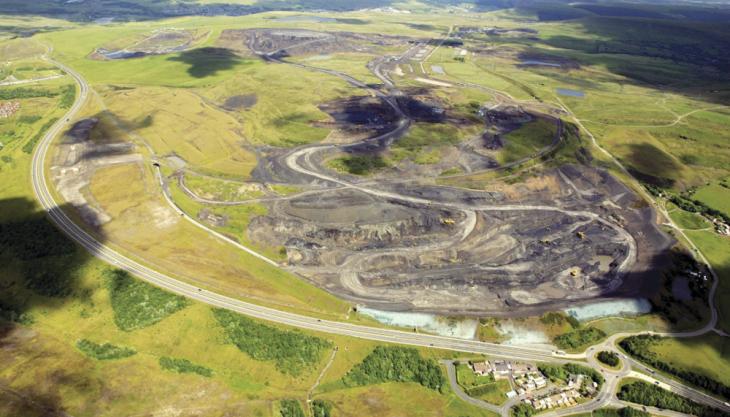Unearthing Merthyr’s industrial heritage

Last year Miller Argent (South Wales) Ltd and the Glamorgan Gwent Archaeological Trust were highly commended in the 2012 British Archaeological Awards for their landmark Dowlais ironworks archaeological project at the Ffos-y-fran land reclamation site, near Merthyr Tydfil, in South Wales.
The Ffos-y-fran project – one of three that were shortlisted for the ‘Best Project’ category – involved the investigation of arguably one of the most important early industrial extractive landscapes in the world.
‘This is one of the world’s most important industrial heritage sites; the findings have added enormously to what we know about this incredibly important part of local and global industrial history,’ said Glamorgan Gwent Archaeological Trust’s chief executive, Andrew Marvell. ‘Our work has set the benchmark for future studies and for a proactive approach to industrial archaeology. Much of that has really been down to working with such forward-thinking developers as Miller Argent, who should be applauded for their efforts.’
The archaeological works at Ffos-y-fran were carried out over a two-year period and involved the detailed recording of nearly 400ha of an early extractive landscape associated with the Dowlais ironworks, one of the largest and most advanced ironworks in the world in the 18th and 19th centuries. The painstaking study has captured and recorded extremely important information and many new insights about what was the UK’s biggest ironworks at a time when the Merthyr community was at the heart of the industrial revolution.
The remains include early patch workings and scourings, ironstone and coal mines, transport systems, supporting industries, settlement sites and elements of the ingenious Dowlais free drainage system, an engineered arrangement of leats and reservoirs which channelled water to power the demands of the ironworks.
The investigations are believed to be the most comprehensive ever to have been carried out in respect of an extensive industrial landscape in the UK, and were undertaken to inform either long-term preservation as part of future site restoration or to ensure full recording where this has not been possible.
Investigation works have included research, historic landscape studies, extensive evaluations (more than 8km of trenches), survey (including LIDAR and laser-scanning), monitoring, and a significant number of discrete excavations. These include the complete excavation of the earliest ironstone pit-head complex yet to be excavated in Wales, the full excavation of an early 19th century ironstone pit, and a rare excavation of an early mining settlement.
Post-excavation research is currently in progress with a particular emphasis on placing the historic interests at Ffos-y-Fran within the wider knowledge of industrial development at Merthyr Tydfil, and related economic, social and cultural histories.


